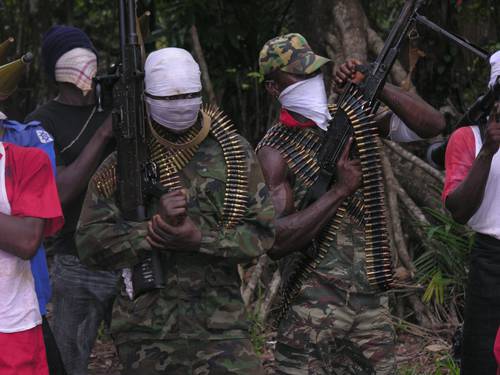The Presidential Amnesty Programme Office has commenced verification of ex-agitators to ascertain the exact number of ex-militants expected in the programme as part of its exit plans.
The Coordinator, Brig-Gen. Paul Boroh (rtd) said this in an interview with the News Agency of Nigeria (NAN) on Saturday in Abuja.
Boroh, who is also the Special Adviser to the President on Niger Delta reiterated Government’s commitment to the training and empowerment of all beneficiaries captured under the programme.
He, however disclosed that more than 3,010 delegates recently exited the programme and have been empowered.
“Exiting from the programme is as a result of empowerment and delegates are given starter packs for their businesses.
“The office trains the ex-militants in various vocational skill centres and educational institutions in Nigeria and abroad,” he said.
According to him, the mandate of the office is not to provide jobs, but to train and reintegrate the ex-militants.
“Well, some people could argue that getting jobs for them is part of reintegration. We have to look into that to see how we can get these persons properly reintegrated,” Boroh said.
The presidential aide said that 200 ex-agitators had graduated from an advanced agriculture training at the Bio Resource Centre in Odi, Bayelsa State.
“We will explore the opportunity provided by the Federal Government so that our delegates that had been trained can be gainfully employed,’’ he said.
Boroh said that agriculture should be encouraged at all levels of national life so that the country could become a multicultural economy that depends less on oil.
He said youth unemployment remained a major challenge in the Niger Delta, and assured that the government would resuscitate the moribund industrial complexes in the region.
According to him, some of the industries include the Aluminium Smelting Company in Akwa Ibom and the Aladja Steel in Delta state.
“These would provide employment for tens of thousands of youths in the Niger Delta,” Boroh said. (NAN)

